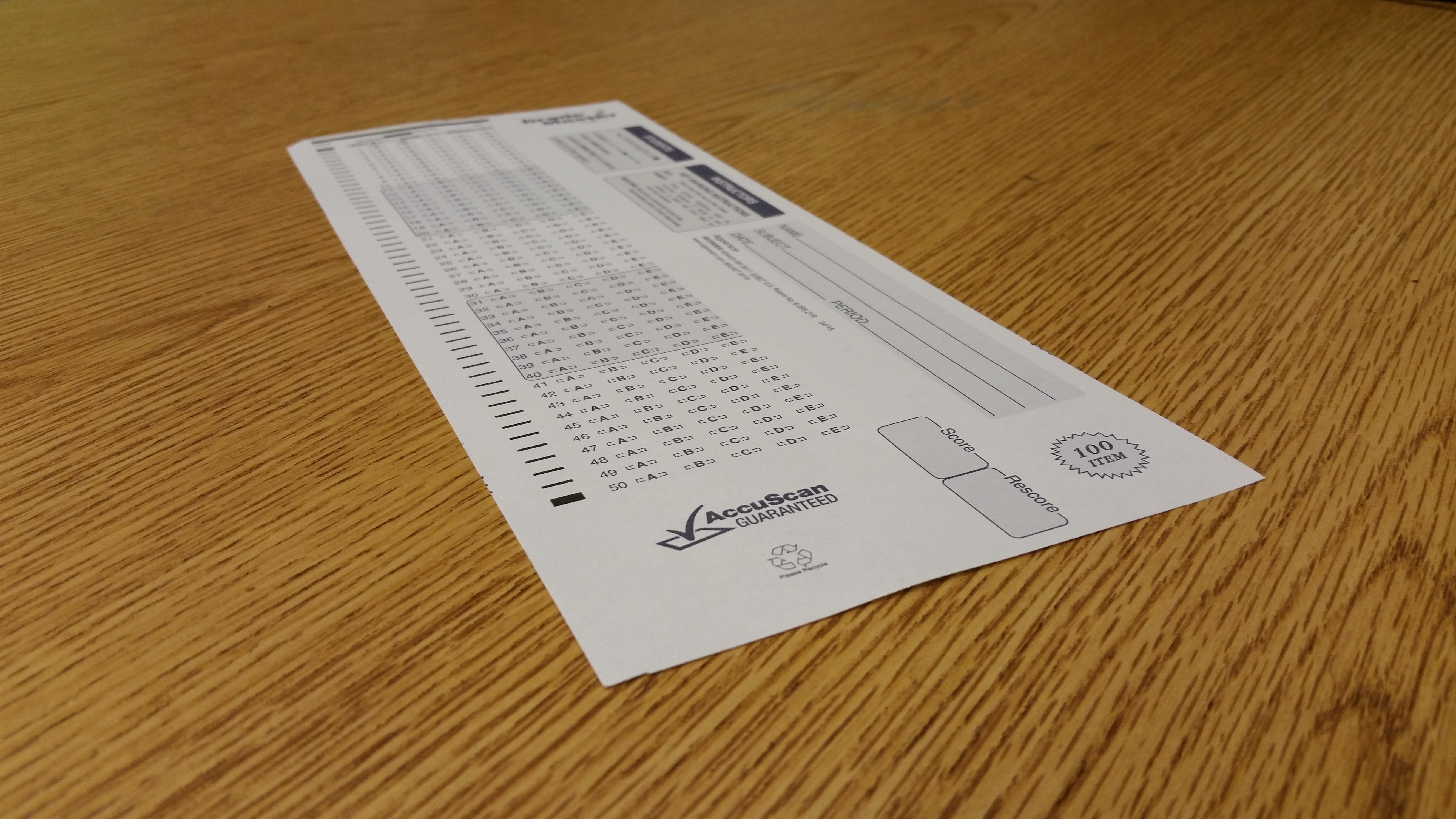Since I took my first EOG a distant 8 years ago to when I took the SAT back in March, the point I’ve heard time and time again is that testing is unethical to force upon young children. Most of these proclamations are appeals to our sense of humanity and a rejection of the cold, mathematical nature of the grading machines. Indeed it seems dehumanizing that we spend time preparing for our judgement at the hands of the College Board.
But what would a world without standardized testing look like?
The SAT was first administered 1926 to objectively measure students from different backgrounds and schools. The problem the SAT was created to address, and the one it addresses fairly well, is that schools have different grading policies which are influenced by the individual teachers handing out the grades. In the rat race of college admissions, the SAT may be one of the only tasks we’re asked to complete in our academic careers which measures us objectively in terms of our work ethic and intelligence.
Grade inflation has been a pervasive problem in American high schools and universities since time immemorial. There is no incentive for a school or teacher to be hard on their student, but there is a multitude of reasons for why a school would hand out a high B as the real “average grade”. It helps dodge the wrath of helicopter parents and ensures that students can balance an unreasonable course load without sinking to “average”.
If our collective actions cause us to live in a world where a C is an absolutely inexcusable grade, colleges are flooded with honor roll students who are part of a suspiciously large amount of clubs. This is why standardized testing is essential to maintaining our academic integrity. Different teachers given the same set of students will produce a different set of grades for each, as each teacher has their own standards as for what it takes to get which grades. If it’s wrong to wager a student’s future over a test, it’s insane to wager it over what kind of teacher they have.
Many claim that the rounds of standardized testing we endure do not accurately predict success in college–but that was never the point of them. To predict college success, we need only to look at a student’s ability to influence their teachers, to win votes for student organizations, and complete assignments. Rather, the exact same set of problems that exist for the high school grading structure exist for the college system, so if a student is successful in the former, they will certainly excel in the latter.
Standardized testing is a measurement of a student’s true ability to work tirelessly to master content–whether that is memorizing facts, dates, and names, or learning how to think critically and solve difficult, “wordy” math problems. This makes it invaluable in an academic system that places value on passing courses more than this skill.
The SAT isn’t easier than it was 30 years ago. They didn’t artificially raise the average score so that more kids will look good and more will choose to take the test. Individual sections have gotten easier, and other sections have gotten more difficult, but it’s still standardized. No matter what the test is like, you are rated based on your performance relative to your peers only. This makes it a gold standard of objectivity, in an academic world that is otherwise almost entirely subjective. clearly quantifying student’s natural aptitude multiplied by their ability to expend effort on a momentous challenge. This is the true value of standardized tests: In the adult world, they are looking for people ready to take on the most intractable challenges of the company. The ideal recruit is someone with optimism and work ethic to boot–and you must have both these things to excel in tests.
A consensus is building among educators that excessive testing is a practice that hurts students, and the use of them ought to be minimized. On the contrary, regular standardized testing is an indispensable asset to the university system and society. It is the only tool that exposes teacher sweet-talkers for what they are, reveals who has been taking the easiest classes at the easiest school, and brings adult-world standards of productivity and accuracy into the student’s mind. When a student can pass a high school math class but can’t do high school math in a regulated environment, it is not an unfair test but rather the best test we could ask for. These tests regularly expose the inadequacies of the students that were caused by the inadequacies of the education system we have devised. Perhaps the only world more horrible than one where standardized testing exists is one where it does not–where the sole indicators of a student’s ability are inflated grades and meaningless club positions.

Leave a Reply